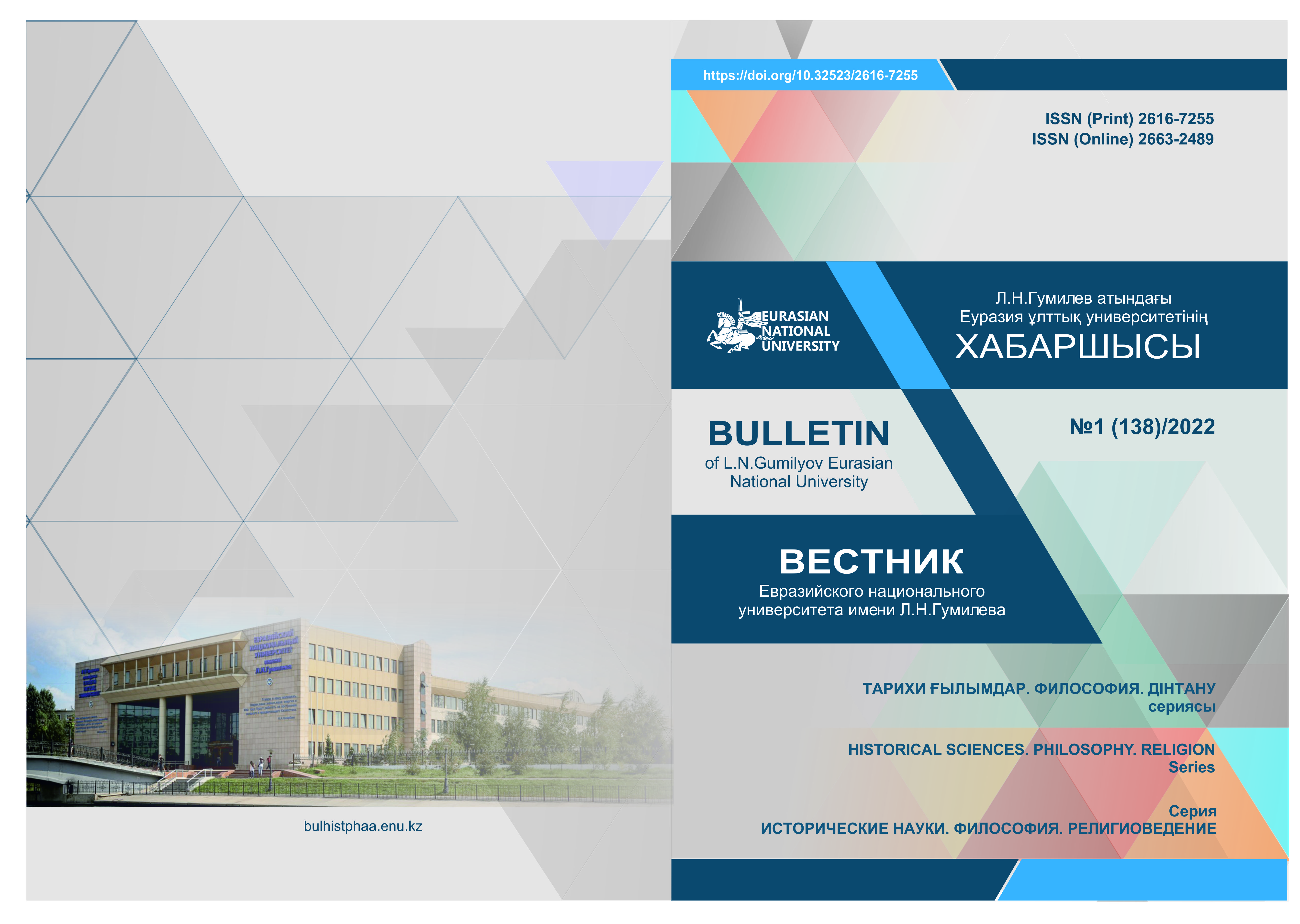Islamic discourse in the stateconfessional policy of the Soviet government in Kazakhstan (1920-1930s)
Views: 289 / PDF downloads: 461
DOI:
https://doi.org/10.32523/2616-7255-2022-138-1-7-24Keywords:
Religion; Muslim clergy; anti-religious struggle; mosques; secularization; the magazineAbstract
The article considers the social and political aspects of the Soviet state policy towards the Muslims of Kazakhstan in the 20-30s of the XX century. Documentary materials from the archives of the Republic of Kazakhstan represent the source study base of the research. Based on the analysis of archival sources, the transformation of state-Muslim relations is shown as the Soviet power strengthened: from a tolerant attitude towards Islam in the first years of the victory of the Bolsheviks to the complete secularization of the rights and freedoms of Muslims in the following decades. The author gives a characteristic of the forms and methods of the anti-religious struggle of the Soviet state, substantiates the thesis about its harmful influence on the spiritual life of Muslims that, under conditions of the most severe administrative pressure and total restriction, took the form of a semi-legal existence. The policy of the Soviet state in relation to Islam was built taking into account the political situation in the country. The loyalty of politics in the early years of Soviet power to a certain extent contributed to the temporary revival of the religious movement. It was due to the desire of the latter to receive political support from a huge number of Muslims of the former Russian Empire, including Kazakhstan. At the same time, loyalty did not exclude the conduct of anti-religious propaganda aimed at limiting Islam. As the Soviet power strengthened, the anti-Islamic doctrine became tougher, acquiring the character of an uncompromising struggle aimed at closing the objects of religious cult and spiritual education, limiting and then eliminating the Muslim clergy, etching the religious worldview from the minds of the masses and imposing communist ideology. The declared “class struggle against the enemies of socialism,” which included the Muslim clergy, became the political underpinnings of the tightening of confessional policy. Public organizations made their contribution to whipping up the atmosphere of intolerance towards religion, to the destruction of the spiritual foundations of society: the Union of Militant Atheists of Kazakhstan, Anti-religious, the Union "Koshchi".
Downloads

Downloads
Published
Issue
Section
License
Copyright (c) 2022 Galia А. Alpyspaeva, Gulmira Zhuman

This work is licensed under a Creative Commons Attribution-NonCommercial 4.0 International License.







